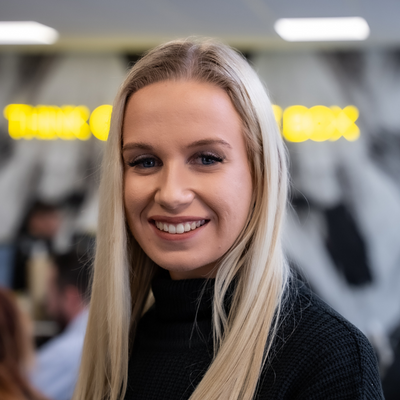
What Are the 8 Types of Job Interview?
02 May, 20231-2 minutes
Job interviews come in a surprising amount of different formats. If you’re currently in the process of searching for a new job, it is important that you know what to expect during this stage of the job application.
In our latest insights piece, we delve into 8 of the most common types of job interview and what exactly these entail.
The 8 Types of Job Interview
In the current day world, there are a variety of different ways you can be interviewed for a job. Whereas in previous years you would typically expect a straightforward face-to-face conversation, the modern demands of businesses and the digital era have meant that no two interviews are the same.
To help you anticipate what sort of interview you could experience when you make it to the next stage in a job application, we have put together this convenient guide. Take a look below to learn what types of job interview you can come to expect and become all the more prepared:
- Traditional Interview
- Phone Interview
- Video Interview
- Case Interview
- Puzzle Interview
- Lunch Interview
- Group Interview
- Working interview
Traditional Interview
A traditional interview is a face-to-face meeting between a job candidate and one or more interviewers. It is a common type of job interview that has been used for many years, and it typically involves a conversation between the candidate and the interviewer(s) to discuss the candidate's qualifications, experience, and suitability for the job.
During a traditional interview, the interviewer may ask a range of questions, including questions about the candidate's work experience, education, skills, and personal qualities. The interviewer may also ask hypothetical questions or situational questions to assess how the candidate would handle certain challenges or scenarios relevant to the job.
A traditional interview can take place in a variety of settings, such as an office, a conference room, or a coffee shop. It may be conducted by one interviewer or a panel of interviewers, depending on the company and the position.
To prepare for a traditional interview, candidates should research the company and the position, review their CV and cover letter, and be prepared to answer common interview questions.
Phone Interview
A phone interview is a type of job interview that takes place over the phone rather than in person. Phone interviews are often used as a preliminary screening tool to narrow down the pool of candidates before inviting them for an in-person interview.
During a phone interview, the interviewer will typically ask questions about the candidate's qualifications, experience, and interest in the position. The questions may be similar to those asked in an in-person interview, but may be more focused on the candidate's fit for the role and the company culture.
Phone interviews are usually shorter than in-person interviews, typically lasting between 20 and 30 minutes. They are also more convenient and flexible for both the candidate and the employer, as they can be scheduled more easily and without the need for travel.
Video Interview
A video interview is a type of job interview that takes place remotely over video conferencing software or pre-recorded video technology. In a video interview, the candidate and interviewer(s) communicate through video and audio rather than in person.
There are two main types of video interviews: live video interviews and pre-recorded video interviews. In a live video interview, the candidate and interviewer(s) communicate in real-time through a video conferencing platform, similar to a traditional face-to-face interview. In a pre-recorded video interview, the candidate records their responses to pre-set questions and submits the video for review by the employer.
Video interviews offer several advantages over traditional in-person interviews. They are more convenient and flexible, as they can be conducted from any location with an internet connection. Video interviews can also save time and money for both the employer and the candidate, as there is no need for travel.
Case Interview
A case interview is a type of job interview that is often used in the consulting industry to assess a candidate's problem-solving skills, business acumen, and ability to think creatively under pressure. In a case interview, the candidate is presented with a business problem or scenario and asked to analyse it and provide a solution or recommendation.
Case interviews typically involve a structured format, with the interviewer presenting a hypothetical business problem or scenario and asking the candidate to walk through their thought process and propose a solution. The interviewer may ask follow-up questions to clarify the candidate's thinking or challenge their assumptions.
Case interviews may focus on a wide range of business topics, such as market analysis, competitive positioning, organisational design, or financial analysis. The candidate is expected to demonstrate a deep understanding of the business problem or scenario and to use their analytical and problem-solving skills to develop a thoughtful and creative solution.
Puzzle Interview
A puzzle interview is a type of job interview that tests a candidate's ability to think creatively and solve complex problems. In a puzzle interview, the interviewer presents the candidate with a puzzle or brain-teaser and asks them to solve it.
Puzzle interviews are often used in industries that require strong problem-solving skills, such as consulting, finance, and technology. The puzzles presented in a puzzle interview can range from logic puzzles and maths problems to visual puzzles and riddles.
The purpose of a puzzle interview is to assess the candidate's ability to think creatively, approach problems from different angles, and persevere through difficult challenges. The interviewer is looking for candidates who can demonstrate a combination of analytical skills, creative thinking, and persistence in solving complex problems.
To prepare for a puzzle interview, candidates should practise their problem-solving skills and familiarise themselves with common types of puzzles and brain-teasers. They should also be prepared to think outside the box, collaborate with the interviewer, and communicate their thought process clearly and concisely.
Lunch Interview
A lunch interview is a type of job interview that takes place over a meal, typically at a restaurant or café. The purpose of a lunch interview is to allow the interviewer to get to know the candidate in a more informal and relaxed setting, while still evaluating their qualifications and suitability for the job.
During a lunch interview, the conversation may cover a range of topics, from the candidate's work experience and qualifications to their interests, hobbies, and personal background. The interviewer may use the opportunity to assess the candidate's communication skills, interpersonal skills, and overall fit with the company culture.
It's important for candidates to remember that a lunch interview is still a job interview, and they should treat it with the same level of professionalism and preparation as they would any other interview. Candidates should dress appropriately, arrive on time, and be prepared to discuss their qualifications and experiences in a thoughtful and engaging manner.
Group Interview
A group interview is a type of job interview where several candidates are interviewed at the same time by one or more interviewers. Group interviews are typically used when an employer wants to assess a large number of candidates in a short amount of time or when they want to evaluate how candidates interact with others.
In a group interview, the candidates may be asked to participate in a variety of activities, such as group discussions, role-playing exercises, or team-based challenges. The interviewers will observe how the candidates interact with each other, how they communicate their ideas, and how they collaborate as a team.
Group interviews can be more challenging than traditional one-on-one interviews, as candidates must compete with other candidates for attention and make a positive impression in a group setting. However, they can also be an opportunity to showcase one's leadership, teamwork, and communication skills.
To prepare for a group interview, candidates should research the company and the position, review their resume and cover letter, and practise their communication and teamwork skills. It's important to be respectful and courteous to other candidates, and to find a balance between being assertive and collaborative.
Working interview
A working interview is a type of job interview where the candidate is asked to perform actual work tasks for a short period of time to assess their skills and suitability for the job. Working interviews are often used for jobs that require hands-on skills, such as trades, healthcare, or hospitality.
During a working interview, the candidate may be asked to perform tasks such as preparing food, assisting with patient care, or performing routine maintenance. The interviewer will observe how the candidate performs the tasks and assess their competence, work ethic, and ability to work with others.
A working interview can be a valuable tool for both the candidate and the employer. For the candidate, it allows them to demonstrate their skills in a real-world setting and get a sense of the job requirements and work environment. For the employer, it provides an opportunity to evaluate the candidate's skills and suitability for the job before making a hiring decision.
It's important for candidates to prepare for a working interview by researching the company and the job requirements, and by bringing any necessary tools or equipment. Candidates should also be prepared to ask questions and engage with their potential co-workers, as the working interview is also an opportunity for the candidate to assess whether the job and work environment are a good fit for them.
Who is Spencer Clarke Group?
Since 2017, we've been changing the face of recruitment. From our employees, to the way we do business, to the culture within our office, we're determined to make a difference and create a positive impact on everyone around us.
Recruitment to us isn't just about matching candidates and clients; we’re passionate about finding candidates the perfect job which has the ability to boost their salary and standard of living, better their work life balance and improve their mental health.
Similarly, we understand the impact which an experienced and skilled employee can make to a business and we love seeing clients thrive through the hard work of candidates which we have placed with them.
We operate in two sectors:
In eleven specialisms:
Healthcare, Social Care & Nursing
Corporate Functions & Business Support
Planning, Development & Regeneration
Highways, Infrastructure & Engineering
If you’re searching for a new role, why not visit our job page to take a look at the latest opportunities? Alternatively, upload your CV and one of our experienced consultants will contact you when a relevant opportunity becomes available.
If you’re struggling to fill a role, why don’t you give us a call on 01772 954200 to see how we can help? One of our consultants will be happy to listen to the challenges which you are facing and advise on the best possible solution for you.


